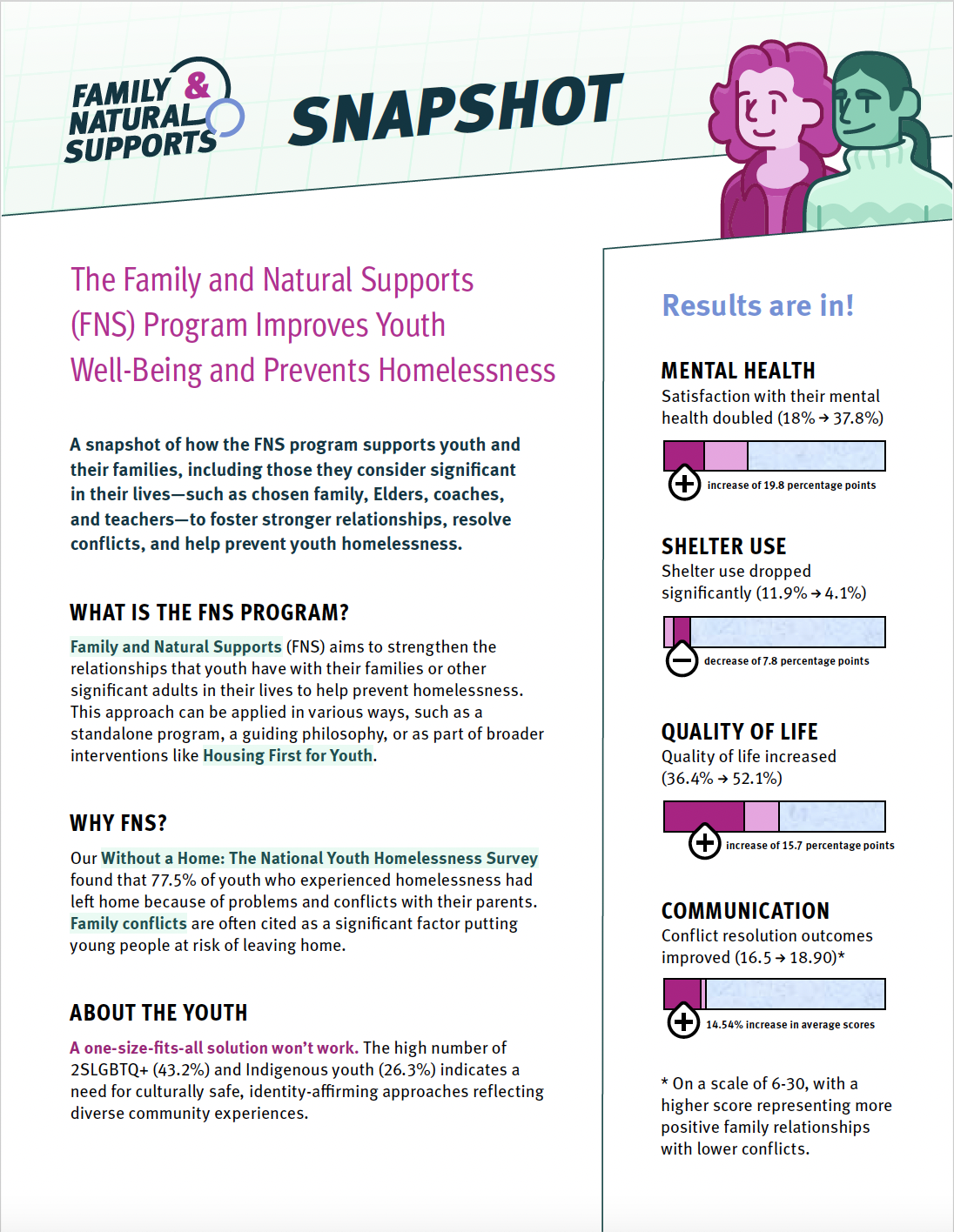A snapshot of how the Family and Natural Supports (FNS) program supports youth and their families, including those they consider significant in their lives—such as chosen family, Elders, coaches, and teachers—to foster stronger relationships, resolve conflicts, and help prevent youth homelessness.
What is the Family and Natural Supports program?
FNS aims to strengthen the relationships that youth have with their families or other significant adults in their lives to help prevent homelessness. This approach can be applied in various ways, such as a standalone program, a guiding philosophy, or as part of broader interventions like Housing First for Youth.
What did our research find?
Across 10 Making the Shift demonstration sites in Canada, we surveyed 118 youth at the start of the program and 98 six months after their entry to assess whether the FNS program had improved their lives. We also conducted semi-structured interviews with 28 youth and 19 family and support members. In total, seven focus groups were held with youth, and two focus groups were conducted with family and natural support participants. Our research found:
- Caseworkers provided emotional support and acted as mentors, reducing family stress
- The FNS program improved the youth’s communication and conflict-resolution skills
- The FNS program helped youth build self-esteem and focus on commitments like school and future career goals
FNS is also Cost-Saving and Easy to Implement
Estimated to cost only approximately $15,000 per youth per year, the FNS program is an affordable, low-barrier implementation option for municipalities or provinces within integrated youth services platforms, such as Youth Wellness Hubs. It can also be used in various settings, including shelters and schools.
Investing in FNS programs will save all levels of government millions of dollars each year by diverting costs from emergency rooms, temporary shelters, social services, and the justice system. The program also alleviates the financial burden on local services, ultimately helping to foster a more resilient community.
Overall, we found that the FNS program was successful in strengthening youth-family relationships, stabilizing home environments, and helping prevent youth homelessness.
To learn more, contact:
- Heidi Walter, Program Design and Training Consultant, A Way Home Canada
- Lauren Mar, Senior Data Coordinator, Canadian Observatory on Homelessness
This research was funded by the Public Health Agency of Canada and was conducted by the Making the Shift Youth Homelessness Social Innovation Lab, which is co-led by A Way Home Canada and the Canadian Observatory on Homelessness.

